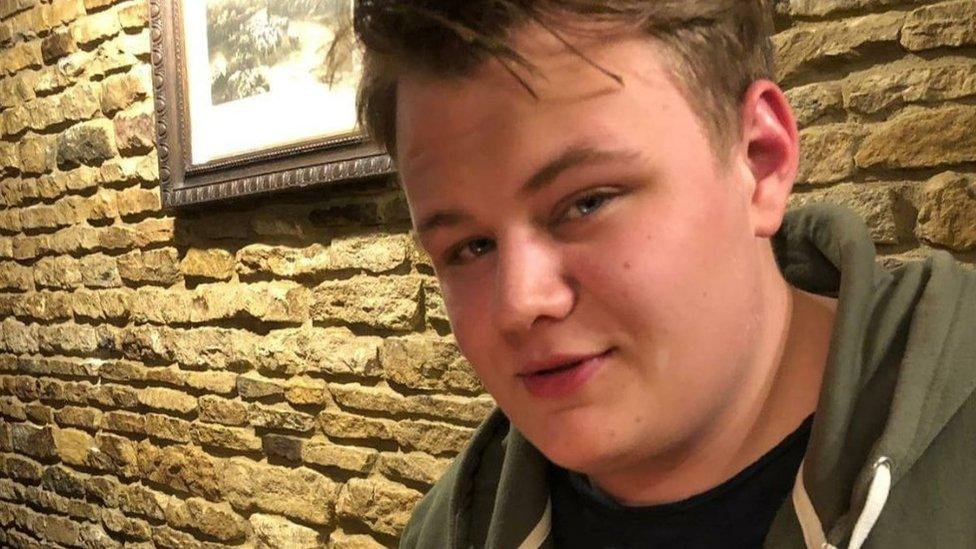Coroner criticises US government in Harry Dunn case
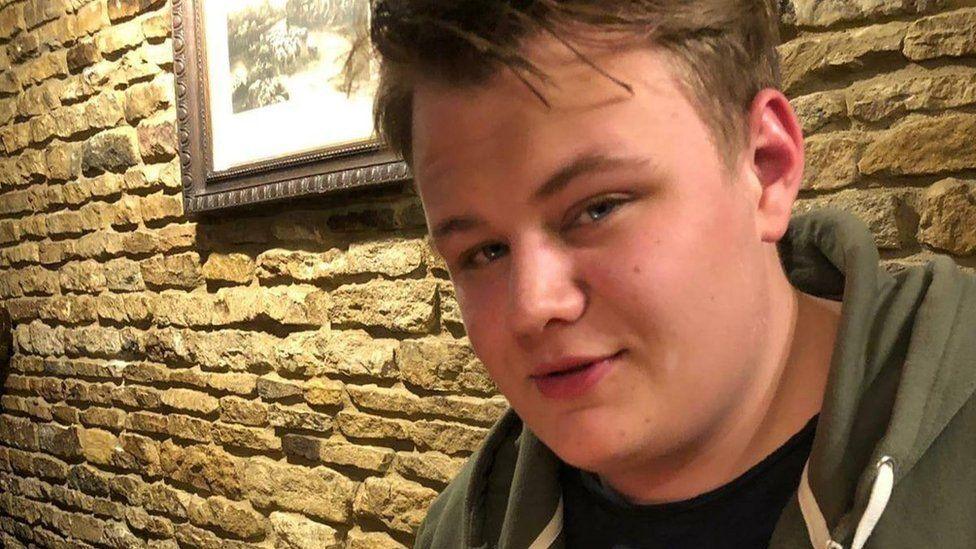
The coroner ruled that Harry Dunn died as a result of a "head-on collision" with a car on the wrong side of the road
- Published
A coroner has criticised the US government for a lack of training provided to employee Anne Sacoolas prior to the crash which killed motorcyclist Harry Dunn.
Anne Pember concluded that Mr Dunn, 19, died as a result of "injuries sustained during a head-on collision" with a car on the wrong side of the road outside RAF Croughton in Northamptonshire.
Speaking after the four-day hearing, Mr Dunn's family accused the US government of "obstructing" their son's inquest.
Representatives of the US embassy and Sacoolas did not attend, prompting family spokesman Radd Seiger to say the US government's position was that the "lives of UK citizens like Harry ultimately do not matter".
At the time of the crash in August 2019, Sacoolas was the wife of a US diplomat stationed at the airbase.
Sacoolas fled to the US and claimed diplomatic immunity.
She was eventually sentenced, via video link in December 2022, to eight months in prison, suspended for a year, for causing death by careless driving.
The inquest at Northampton Coroner's Court was told she currently worked as an analyst for the US State Department.
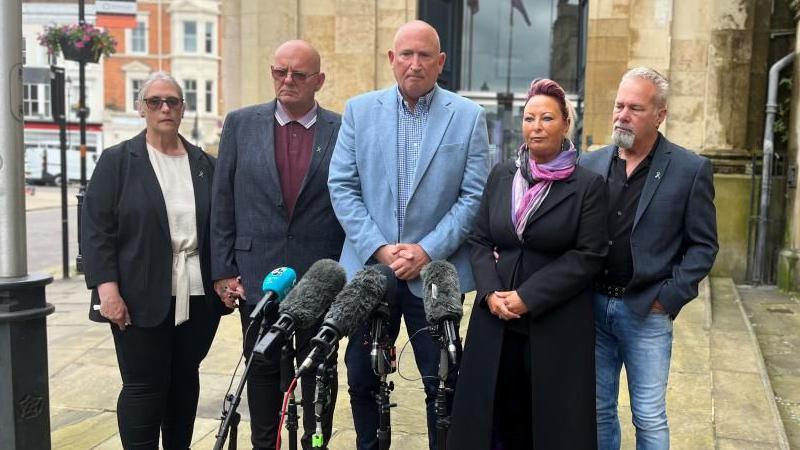
Harry Dunn's parents, their partners and family spokesman Radd Seiger (centre) spoke after the inquest
Sacoolas had supplied two new statements to the coroner for the inquest.
The proceedings were delayed twice this week because of eleventh hour talks over whether Sacoolas would attend the hearing.
The coroner heard her responses during a police interview two months after the fatal crash and a statement from her lawyers from 2020.
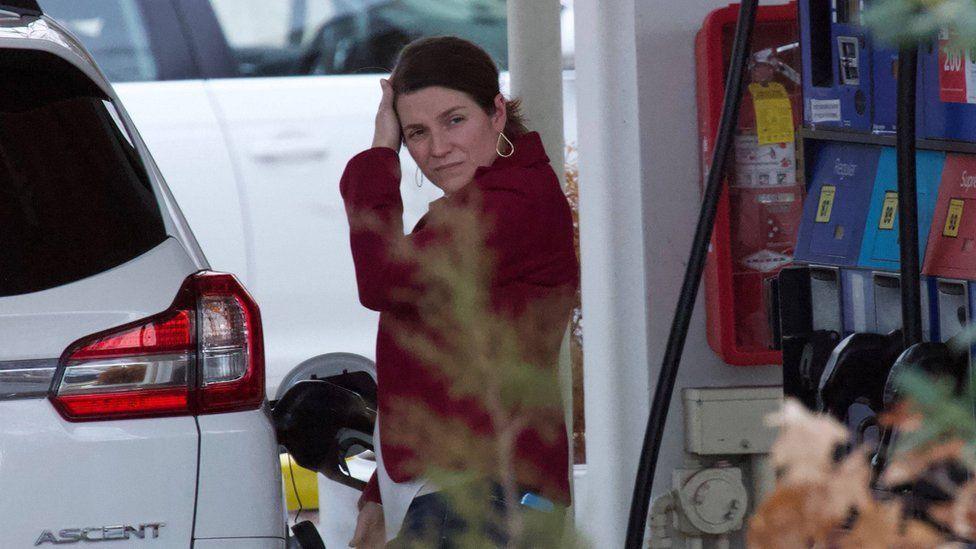
Anne Sacoolas did not attend the four-day inquest into Harry Dunn's death in Northampton
The coroner has issued three Prevention of Future Death notices relating to the lack of training given to Sacoolas for driving in the UK.
Harry Dunn's mother Charlotte Charles said: "The fact that we’ve got that Prevention of Future Deaths [notice] approved by the coroner, and she is going to suggest that they do need to undergo training, is amazing for us.
"We will be keeping that pressure on to try to make sure that they do carry it through.
"We cannot have any other family going through what we went through."
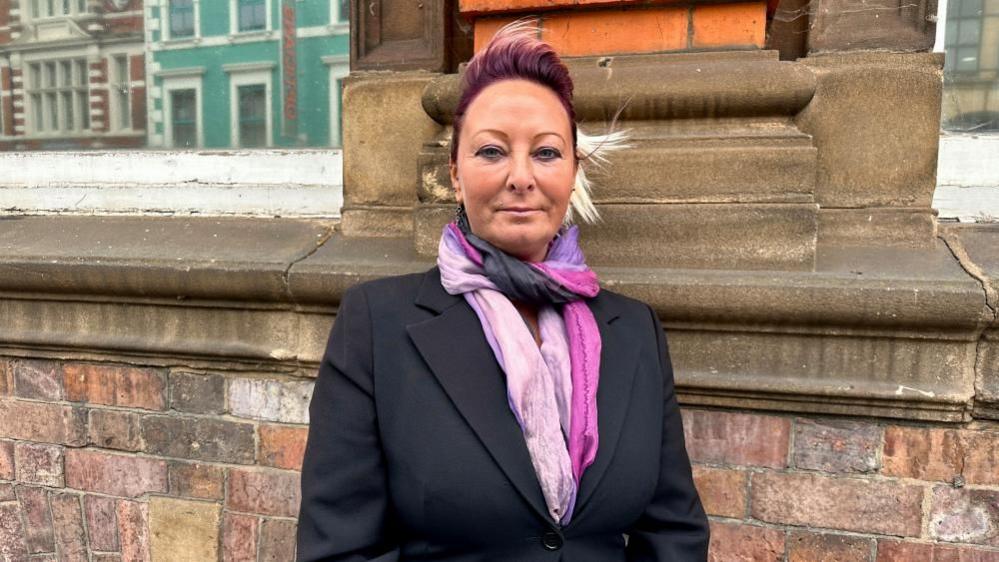
Harry Dunn's mother Charlotte Charles said she would put pressure on the US to introduce driver training
Ms Charles said Sacoolas's failure to attend the inquest - or previous court hearings - would "forever leave us feeling bitterly disappointed in her".
The family's spokesman, Radd Seiger, told reporters they had been informed Sacoolas was willing to attend the inquest remotely - provided their lawyer did not ask her questions.
He said: "Who would seek to restrict a grieving family's opportunity to understand how their son died in that way?"
In a statement read to the hearing earlier, Sacoolas apologised for her "tragic mistake" which would "live with every single day for the rest of my life".
A representative for Sacoolas declined to comment when contacted by the BBC.
Follow Northamptonshire news on Facebook, external, Instagram, external and X, external. Got a story? Email eastofenglandnews@bbc.co.uk, external or WhatsApp us on 0800 169 1830
Related topics
- Published12 June 2024
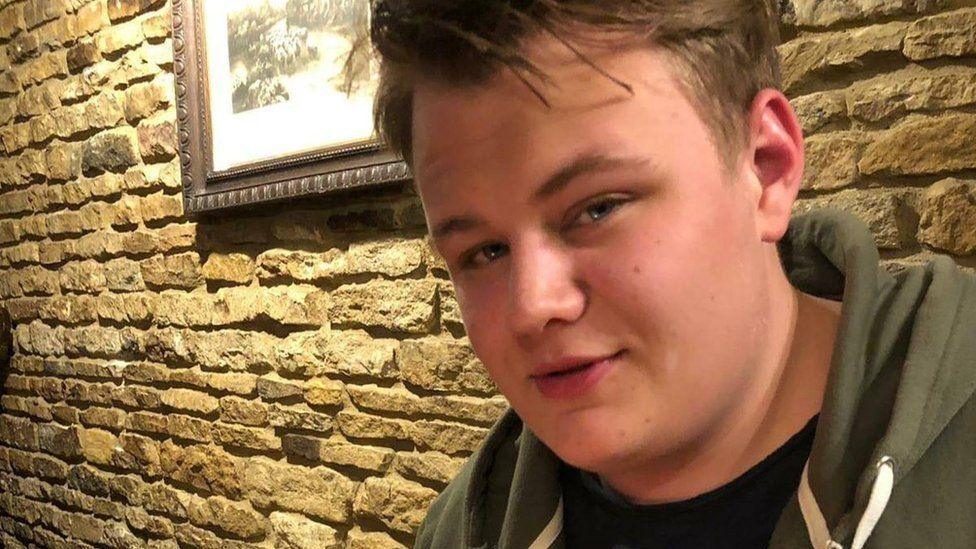
- Published10 June 2024

- Published10 June 2024
